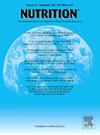水果和蔬菜对儿童心理和认知健康的影响:干预研究的系统回顾与未来研究展望
IF 3.2
3区 医学
Q2 NUTRITION & DIETETICS
引用次数: 0
摘要
我们的目的是了解这些干预措施在改善认知能力或心理健康方面的效果,并确定成功的干预因素,为未来研究提供参考。方法我们对 Cochrane、Embase、PubMed 和 CINAHL 数据库中 2022 年 8 月之前发表的文章进行了系统检索(PROSPERO 注册号:CRD42022356571)。结果在 4686 篇文章中,经筛选的 17 篇全文中只有 7 篇被纳入最终综述。没有研究调查了使用 "全 "水果或蔬菜进行干预的效果。六项研究使用新鲜蓝莓(1 杯)或冻干蓝莓(30 克)制成的饮料对蓝莓的效果进行了调查,一项研究对桑葚粉制成的饮料进行了评估。样本量从 14 个到 54 个不等,大多数研究都是急性干预,在 2 到 3 小时内测量结果(n = 6)。通过对反应方向的叙述性综合,执行功能的测量结果似乎对急性和长期干预效果都很敏感。根据RoB 2工具,一些明显的偏倚风险问题与方法学方面的报告不完整有关。结论本系统综述所确定的研究无法直接解决计划中的研究问题,因此证据的确定性较差。未来有关全果蔬干预措施的研究可以更好地为改善儿童心理和认知健康状况的人口健康战略提供信息。本文章由计算机程序翻译,如有差异,请以英文原文为准。
The effect of fruits and vegetables on children's mental and cognitive health: A systematic review of intervention studies and perspective for future research
Objectives
To synthesize evidence from fruit and vegetable intervention studies investigating mental or cognitive health outcomes (or both) in children ≤10 y. Our aim was to understand the efficacy of such interventions in improving measures of cognitive performance or mental health and to identify successful intervention elements to inform future research.
Methods
We conducted a systematic search of the Cochrane, Embase, PubMed, and CINAHL databases for articles published before August 2022 (PROSPERO registration no. CRD42022356571). A narrative synthesis was conducted according to the Synthesis Without Meta-Analysis guidelines.
Results
Of the 4686 articles identified, only 7 of the 17 full texts screened were included in the final review. No studies investigated the efficacy of interventions using “whole” fruits or vegetables. Six studies examined the effects of blueberries using drinks made from fresh (1 cup) or freeze-dried (30 g) blueberries and one study evaluated a mulberry powder–based drink. Sample sizes ranged from 14 to 54, and most studies were acute interventions with outcomes measured in a 2- to 3-h window (n = 6). Through a narrative synthesis of direction of responses, measures of executive function appeared sensitive to intervention effects in both acute and longer-term settings. Some concerns of risk of bias were evident, according to the RoB 2 tool, related to incomplete reporting of methodological aspects.
Conclusions
The studies identified through this systematic review could not directly address the planned research question, resulting in poor certainty of evidence. Future research with whole fruit and vegetable interventions could better inform population health strategies for improved mental and cognitive health outcomes in children.
求助全文
通过发布文献求助,成功后即可免费获取论文全文。
去求助
来源期刊

Nutrition
医学-营养学
CiteScore
7.80
自引率
2.30%
发文量
300
审稿时长
60 days
期刊介绍:
Nutrition has an open access mirror journal Nutrition: X, sharing the same aims and scope, editorial team, submission system and rigorous peer review.
Founded by Michael M. Meguid in the early 1980''s, Nutrition presents advances in nutrition research and science, informs its readers on new and advancing technologies and data in clinical nutrition practice, encourages the application of outcomes research and meta-analyses to problems in patient-related nutrition; and seeks to help clarify and set the research, policy and practice agenda for nutrition science to enhance human well-being in the years ahead.
 求助内容:
求助内容: 应助结果提醒方式:
应助结果提醒方式:


